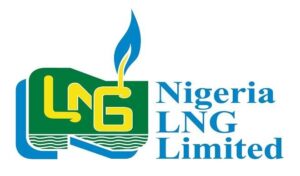Financial constraints threaten non-oil exports in Nigeria
Financial constraints have been identified as a major challenge hindering exports in Nigeria.
A new report on Trade Financing in Nigeria, has revealed that 94 per cent of exporters experienced rejection of their financing requests by Nigerian banks, thereby making it difficult for them to undertake exports.
The report themed: “Stimulating Export Finance Growth”, released by 3T Impex Consulting, revealed 81% of the rejected financing were pre-exports, while 19% were pre-shipping.
It noted that importers with 42 per cent of rejected export finance requests were done without any reason given to the exporters, while 21 per cent of the rejected export financing requests were based on lack or inadequate collateral security and 8 per cent were due to inadequate documentation.
Officially unveiling the report in Lagos, the Lead Consultant, 3T Impex Consulting, Dr Bamidele Ayemibo, said our survival as a nation depends on non-oil exports, but it is unfortunate that only six percent of the exports financing are granted by banks.
He said: “The country is currently experiencing a very high level of inflation which has resulted in high cost of living given that Nigeria is largely import-dependent. The consequent high rate of exchange of the Naira to major foreign currencies used to pay for imported goods has made the cost of importation to be at all-time high”
Ayemibo stated that export is the low hanging fruit that can help Nigeria increase its foreign exchange generation.
“It is also important to state that exportation is the only means of generating foreign exchange that the country has control over, and this is because other means of foreign exchange inflow like Foreign Direct Investment, (FDI), Foreign Portfolio Investment (FPI), are controlled by investors who want to do business in Nigeria while the foreign remittances are controlled by Nigerians in diaspora who want to financially support their friends and relatives at home in Nigeria”
This, according to him, showed that our survival as a nation depends on non-oil exports, but it is unfortunate that 94% percent of the exports financing requests are rejected.
Emphasising that this situation is not good for Nigerian economy, he urged banks to train exporters on how to present their export finance requests.
Major challenges that exporters face, according to the report includes; port logistics (26 per cent); access to finance (20 per cent); customs and delay by other government agencies at the port (11 per cent); exchange rate (10 per cent); market access (6 per cent); and access to raw materials (4 per cent); and poor infrastructure (4 per cent), among others.
The report also stated that only 11 per cent of exporters received approval for their export financing request; adding that only 22 per cent of export financing requests were approved within one month of application.
The report identified Zenith, UBA and Fidelity banks as the most export friendly banks in Nigeria.
Noting that 59 per cent of exporters were attracted to banks that have support services for exporters, Ayemibo emphasised that the banks must be creative in financing.
“You can finance the exporter without a collateral. You only need to have a credit scoring system which will separate the unserious from serious exporters,” he stated.
He urged bankers to exploit export support services that will attract exporters, such as market access, export finance products, documentation and speedy delivery, among others.
“The Nigeran banks need to become more creative in export credit risk assessment. They need to avoid using old knowledge of general credit risk assessment for solving present-day problems of export business financing.
“They need to avoid insisting on tangible collaterals and begin to accept intangible collaterals like trade finance instruments as security. This will require Nigerian banks to engage in aggressive capacity building programmes for their staff,” he stated.
However, he enjoined the MDAs of government and other private stakeholders to work together to speed -up the clearing of goods at the ports.
“There should be a dedicated online portal designed to track progress of export clearance, flag any agency that is causing delay in the clearing process and measures to deter future occurrences,” he stated.
Ayemibo further urged exporters to learn about the risks and dynamics of the various payment methods in international trade and trade finance instruments to cover their risk in other to recommend the most appropriate ones in export financing proposals.
“Exporters, particularly the Micro Small and Medium Enterprises (MSMEs), need to be export-ready before approaching a bank for financing. This will significantly reduce the level of rejection of their financing requests.
“MSMEs need capacity building to prepare bankable export financing proposal acceptable to the banks.
“They need to work towards providing equity contributions by the banks and explore further in getting trade finance instruments from their prospective buyers abroad in order to provide level of comfort required by their banks to disburse needed funds” he stated.
Bank representatives at the presentation expressed their interest in lending to exports but noted that the exporters in most cases are not showing commitment to the financing procedures.




